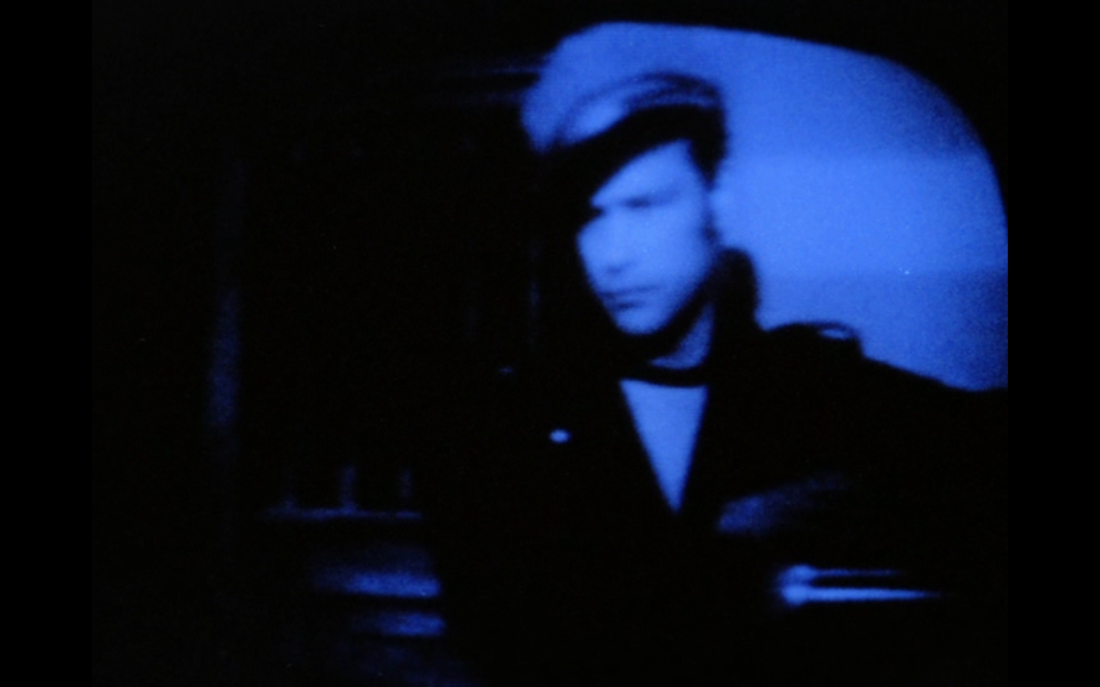The Conversation excellently balances themes of paranoia and privacy with the political climate of Watergate. Coppola uses a moving camera to establish a watchful eye over his characters. In the opening scene, a long zoom takes an extreme wide shot of a busy outdoor court into a medium shot, in the process eliminating the notion of privacy. In a later scene inside of Harry Caul’s apartment, Harry seems to be attempting to avoid the camera’s gaze as he makes a phone call, but the camera moves and follows him. A third (and perhaps the most damning instance) is the final shot of the film. As Harry Caul sits in his torn apartment, the camera pans repeatedly from the right to the left from a high angle, imitating a security camera. Harry has torn his apartment apart trying to find the bug, but he still cannot escape the camera’s eye. Privacy is impossible.
The film is also full of allusions to the political climate of the 1960s and 70s. In the opening scene, a man sits on a ledge with a long scope, spying on the people below. Though he is only recording audio, he resembles a sniper, which recalls political assassinations. Bernie Moran, Caul’s rival bugger, talks about bugging a presidential candidate and how it ended in his opponent getting elected President. Of course the current President is Nixon, which screams of political conspiracy. And then later during the murder scene Harry Caul turns on the TV to mask the screams coming from the adjoining room. News regarding President Nixon is on the TV, further associating the President and politics with unsavory things like murder and conspiracy. In this way, The Conversation is similar to Chinatown. Chinatown can be considered a response to the Watergate scandal and deals with the same themes of conspiracy and paranoia.
Observation
I really enjoyed The Conversation. This was the second time I saw it and this time I appreciated the aesthetic choices in camera movement and audio. Something I found interesting is that in the scenes in which Harry is listening to the audio of the couple, Coppola uses cutaways that include the audio and picture. Of course these cutaways are probably psychological and in Harry’s mind, as evidenced by the changing of the phrase “He’d kill us if he got the chance,” (which is what Harry imagines) to its true form, “He’d kill us if he got the chance.” A subtle change which makes all the difference.
The film is also full of allusions to the political climate of the 1960s and 70s. In the opening scene, a man sits on a ledge with a long scope, spying on the people below. Though he is only recording audio, he resembles a sniper, which recalls political assassinations. Bernie Moran, Caul’s rival bugger, talks about bugging a presidential candidate and how it ended in his opponent getting elected President. Of course the current President is Nixon, which screams of political conspiracy. And then later during the murder scene Harry Caul turns on the TV to mask the screams coming from the adjoining room. News regarding President Nixon is on the TV, further associating the President and politics with unsavory things like murder and conspiracy. In this way, The Conversation is similar to Chinatown. Chinatown can be considered a response to the Watergate scandal and deals with the same themes of conspiracy and paranoia.
Observation
I really enjoyed The Conversation. This was the second time I saw it and this time I appreciated the aesthetic choices in camera movement and audio. Something I found interesting is that in the scenes in which Harry is listening to the audio of the couple, Coppola uses cutaways that include the audio and picture. Of course these cutaways are probably psychological and in Harry’s mind, as evidenced by the changing of the phrase “He’d kill us if he got the chance,” (which is what Harry imagines) to its true form, “He’d kill us if he got the chance.” A subtle change which makes all the difference.

 RSS Feed
RSS Feed